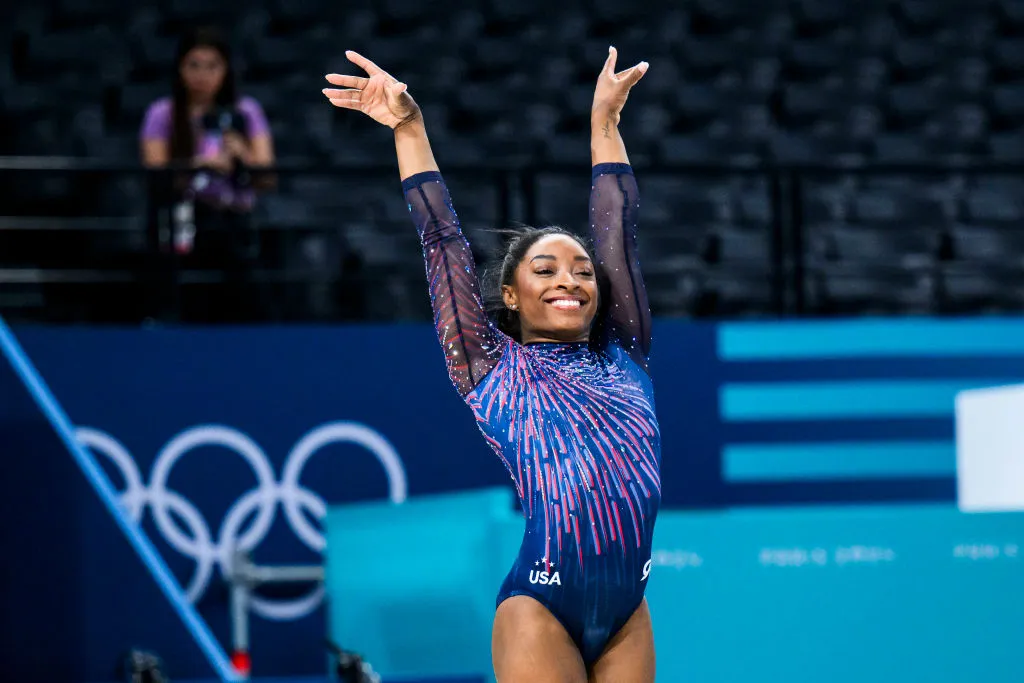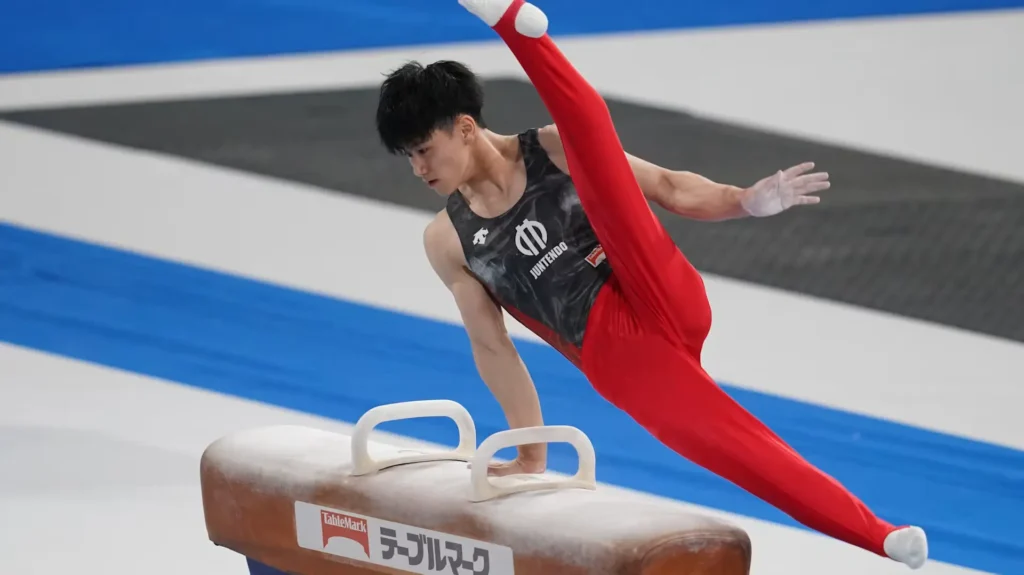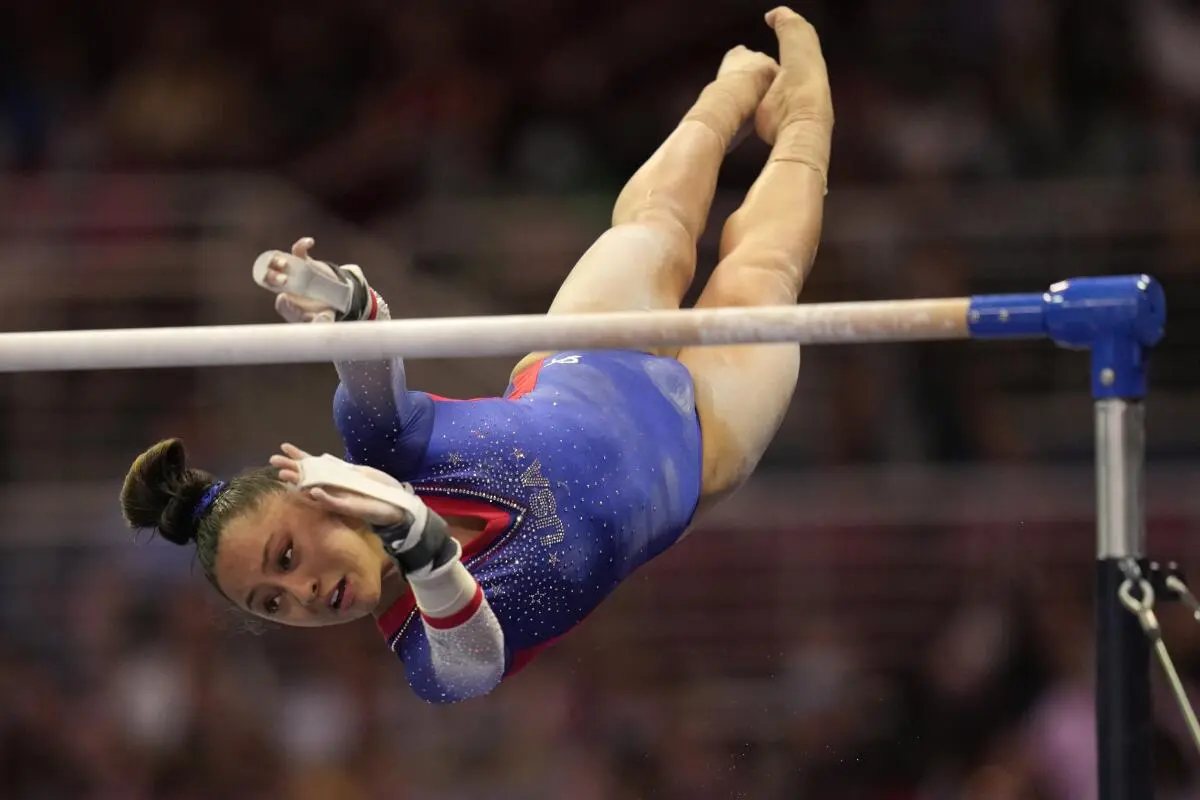Gymnastics has been a part of the Olympic Games since the very beginning, with the first modern Olympic Games held in Athens, Greece, in 1896. From those humble beginnings, the sport has grown to become one of the most captivating and prestigious events in the Olympic program.
The early years of gymnastics in the Olympics were dominated by European nations, with countries like Germany, Sweden, and Switzerland leading the charge. Over time, the sport has become truly global, with gymnasts from all corners of the world showcasing their exceptional skills on the world’s biggest stage.
The evolution of gymnastics in the Olympics has been a testament to the sport’s enduring appeal and the relentless pursuit of perfection by the athletes. From the introduction of new events and disciplines to the continuous refinement of the scoring system, gymnastics has consistently pushed the boundaries of human performance and captivated audiences worldwide.
Gymnastics disciplines in the Olympics
The Gymnastics Olympics feature a diverse array of disciplines, each with its own unique challenges and requirements. The men’s and women’s artistic gymnastics events are the most well-known, with athletes competing in six and four events, respectively.
In the men’s artistic gymnastics, the events include floor exercise, pommel horse, rings, vault, parallel bars, and horizontal bar. These events demand a combination of strength, agility, and precision, as gymnasts execute a series of acrobatic moves and intricate routines.
The women’s artistic gymnastics, on the other hand, features events such as vault, uneven bars, balance beam, and floor exercise. These events require exceptional balance, flexibility, and the ability to perform complex, gravity-defying maneuvers.
Alongside the artistic gymnastics events, the Olympics also include rhythmic gymnastics, a discipline that combines elements of dance, acrobatics, and the use of specialized apparatus, such as hoops, balls, clubs, and ribbons. This event showcases the artistry and grace of the gymnasts, as they seamlessly integrate their movements with the manipulation of the apparatus.
The trampoline gymnastics event, introduced in the 2000 Sydney Olympics, adds an extra dimension to the sport, with gymnasts performing high-flying acrobatic routines while bouncing on a specialized trampoline. This event requires a unique blend of power, coordination, and aerial awareness.
Each of these disciplines presents its own set of challenges, and the athletes who compete in the Gymnastics Olympics must possess a rare combination of physical prowess, technical mastery, and mental fortitude to excel in their respective events.
Notable gymnasts to watch out for in the 2024 Olympics
As the Gymnastics Olympics 2024 approaches, the spotlight will shine on a talented pool of athletes, both seasoned veterans and rising stars, who are poised to captivate audiences with their exceptional performances.
One gymnast to keep an eye on is Simone Biles, the American superstar who has dominated the sport in recent years. Biles, a multiple Olympic and World Champion, is known for her gravity-defying skills, impeccable technique, and unwavering mental fortitude. Despite the immense pressure and expectations, Biles has consistently delivered awe-inspiring routines, and her return to the 2024 Olympics is eagerly anticipated by fans worldwide.
Another athlete to watch is Sunisa Lee, Biles’ compatriot and the reigning Olympic all-around champion. Lee’s rise to the top has been remarkable, and her combination of elegance, power, and precision has made her a force to be reckoned with in the women’s artistic gymnastics events. As she looks to defend her title, Lee’s performances are sure to captivate audiences and inspire the next generation of gymnasts.
On the men’s side, the spotlight will be on Daiki Hashimoto, the Japanese gymnast who has emerged as one of the sport’s brightest young stars. Hashimoto’s exceptional all-around skills and his ability to excel in multiple events have earned him widespread acclaim, and his quest for Olympic glory in 2024 will be closely followed by fans in Japan and beyond.
The 2024 Olympics will also see the return of seasoned veterans like Yul Moldauer of the United States and Nikita Nagornyy of Russia, both of whom have established themselves as leaders in the men’s artistic gymnastics events. Their experience, determination, and technical mastery will undoubtedly make them formidable contenders for the podium.
These are just a few of the many talented gymnasts who will be vying for glory at the Gymnastics Olympics 2024. As the competition unfolds, fans can expect to witness a thrilling display of athleticism, precision, and the pursuit of perfection, as these exceptional athletes strive to etch their names in the annals of Olympic history.

Records and achievements in Gymnastics Olympics
The Gymnastics Olympics has a rich history of remarkable achievements and record-breaking performances that have captivated audiences around the world.
One of the most celebrated records in the sport belongs to the legendary Simone Biles, who has amassed a staggering 7 Olympic medals, including 4 gold medals, making her the most decorated gymnast in American history. Biles’ unparalleled skill, coupled with her ability to push the boundaries of what is physically possible, has earned her a revered status in the sport.
Another iconic record is held by Larisa Latynina, the Soviet gymnast who competed in the 1950s and 1960s. Latynina’s tally of 18 Olympic medals, including 9 gold medals, remains the highest number of Olympic medals won by any gymnast, male or female, in the history of the sport. Her longevity and consistent excellence over multiple Olympic cycles have cemented her legacy as one of the greatest gymnasts of all time.
The 2024 Olympics will also see the potential for new records to be set, as the current generation of gymnasts push the boundaries of what is possible. One such athlete is Daiki Hashimoto, the Japanese phenom who, at the age of 19, became the youngest male gymnast to win the Olympic all-around title in Tokyo 2020. Hashimoto’s remarkable achievements have set the stage for him to potentially rewrite the record books in the 2024 Olympics.
Gymnastics has also seen its fair share of dramatic moments and unexpected triumphs, which have added to the sport’s enduring appeal. The 1996 Olympics in Atlanta, for instance, witnessed the rise of the “Magnificent Seven,” the U.S. women’s gymnastics team that captured the hearts of fans worldwide with their dazzling performances and team camaraderie.
More recently, the 2016 Rio Olympics saw the emergence of Simone Biles as a true superstar, as she became the first female gymnast in nearly two decades to win four gold medals at a single Olympic Games. Her performances, marked by technical brilliance and unparalleled athleticism, have inspired a new generation of gymnasts to strive for greatness.
As the Gymnastics Olympics 2024 approaches, fans can expect to witness more awe-inspiring feats, record-breaking performances, and moments that will cement the sport’s status as one of the most captivating and prestigious events in the Olympic program.
Gymnastics equipment and scoring system
The Gymnastics Olympics competitions are a testament to the sport’s intricate and highly specialized equipment, each designed to challenge the athletes’ skills and push the boundaries of human performance.
In the men’s artistic gymnastics events, the equipment includes the floor exercise mat, pommel horse, rings, vault, parallel bars, and horizontal bar. Each apparatus requires a unique set of techniques and skills, from the fluid movements on the floor exercise to the gravity-defying maneuvers on the rings.
The women’s artistic gymnastics events feature the vault, uneven bars, balance beam, and floor exercise. The uneven bars, in particular, showcase the gymnasts’ strength, coordination, and ability to transition seamlessly between the two bars. The balance beam, with its narrow surface and complex acrobatic elements, demands exceptional balance, focus, and control from the athletes.
Rhythmic gymnastics, on the other hand, utilizes a range of specialized apparatus, including hoops, balls, clubs, and ribbons. These delicate, hand-held implements require exceptional dexterity, coordination, and the ability to seamlessly integrate them into the gymnasts’ fluid, dance-inspired routines.
The trampoline gymnastics event features a large, specialized trampoline that allows gymnasts to perform a series of acrobatic skills, including twists, flips, and somersaults, all while maintaining control and precision in the air.
Underpinning the Gymnastics Olympics competitions is a complex scoring system that evaluates the athletes’ performances across a range of criteria, including difficulty, execution, and artistry. This system has evolved over the years, with the International Gymnastics Federation (FIG) continuously refining the rules and regulations to ensure fairness, transparency, and the recognition of exceptional performances.
The scoring system takes into account the technical difficulty of the routines, the execution of individual skills, and the overall artistic impression. Penalties are also assessed for various deductions, such as falls, steps out of bounds, or lack of amplitude in the movements.
The intricate nature of the gymnastics equipment and the scoring system underscores the incredible dedication, training, and attention to detail required by the athletes to excel in this demanding sport. As the Gymnastics Olympics 2024 approaches, fans can look forward to witnessing the seamless integration of these specialized elements, as the world’s best gymnasts push the boundaries of what is possible.
Training and preparation for Gymnastics Olympics
The path to the Gymnastics Olympics is paved with years of intense training, dedication, and unwavering commitment from the athletes. For these gymnasts, the pursuit of Olympic glory is a lifelong endeavor, requiring a relentless focus on honing their skills, improving their physical conditioning, and mastering the mental aspects of the sport.
The training regimen of an Olympic gymnast is nothing short of grueling, with daily sessions that can last up to six hours or more. These sessions involve a meticulous focus on perfecting the execution of each skill, refining the transitions between elements, and building the strength, flexibility, and endurance necessary to perform at the highest level.
Alongside the physical training, Olympic gymnasts also dedicate significant time to developing their mental fortitude. This includes visualization exercises, psychological training, and the cultivation of a mindset that can withstand the immense pressure and expectations that come with competing on the world’s biggest stage.
The road to the Gymnastics Olympics is also marked by a series of qualifying events and national trials, where gymnasts must demonstrate their readiness and earn a coveted spot on their country’s Olympic team. This process is highly competitive, with only a select few able to make the final cut and represent their nation at the Games.
Once selected, the gymnasts continue their rigorous training, fine-tuning their routines, and preparing for the intense scrutiny and media attention that comes with the Olympic spotlight. They must maintain their focus, manage their nerves, and remain resilient in the face of setbacks or unexpected challenges that may arise during the competition.
The dedication and sacrifice required to reach the Gymnastics Olympics are truly remarkable. These athletes have dedicated countless hours to their craft, pushing their bodies and minds to the limit in pursuit of their Olympic dreams. As the 2024 Games approach, the world will witness the culmination of these efforts, as the gymnasts take center stage and showcase their extraordinary talents.

The importance of mental and physical fitness in gymnastics
Gymnastics is a sport that demands an exceptional level of both physical and mental fitness from its practitioners. The athletes who excel in this discipline must possess a rare combination of strength, agility, flexibility, and unwavering mental fortitude.
On the physical side, gymnasts must develop an exceptional level of muscular strength, power, and endurance to execute the complex routines and gravity-defying maneuvers required in their events. This includes building the core, upper body, and lower body strength necessary to support their body weight and perform intricate skills with precision and control.
Flexibility is also crucial in gymnastics, as the athletes must be able to contort their bodies into positions that defy the limits of human movement. From the splits to the backbends, the gymnasts’ ability to push the boundaries of their physical capabilities is a key factor in their success.
Alongside physical prowess, the mental aspect of gymnastics is equally, if not more, important. The high-pressure environment of the Olympics, the intense focus required during routines, and the need to maintain composure in the face of setbacks all demand exceptional mental fortitude from the athletes.
Gymnastics requires a level of concentration and focus that is unparalleled in many other sports. A single lapse in attention or a momentary loss of control can mean the difference between a medal-winning performance and a devastating fall. As a result, gymnasts must develop techniques for managing their nerves, maintaining their composure, and staying present in the moment.
The ability to visualize and mentally rehearse their routines is also a crucial skill for Olympic gymnasts. By repeatedly visualizing themselves executing their skills flawlessly, they can build the neural pathways necessary to translate their mental preparation into physical reality during competition.
The combination of physical and mental fitness is what sets the world’s best gymnasts apart. These athletes have honed their bodies and minds to the point where they can perform feats of incredible athleticism and grace, all while maintaining the mental focus and resilience required to excel on the biggest stage.
As the nanastoto approaches, the spotlight will shine on these remarkable individuals, whose dedication, discipline, and commitment to their craft have transformed them into true masters of their sport.
Gymnastics Olympics controversies and memorable moments
The Gymnastics Olympics, like any other major sporting event, has been the stage for both controversy and unforgettable moments that have etched their place in the sport’s rich history.
One of the most significant controversies in recent memory was the scoring dispute that marred the women’s all-around final at the 2004 Athens Olympics. In a highly contentious decision, the judges awarded the gold medal to the Russian gymnast Svetlana Khorkina, despite widespread criticism that Carly Patterson of the United States had outperformed her. This decision sparked outrage and calls for reform in the scoring system, ultimately leading to changes in the way gymnastics events are judged.
Another controversial moment occurred at the 2008 Beijing Olympics, when the Chinese women’s gymnastics team was accused of fielding underage athletes, a violation of the sport’s rules. The scandal cast a shadow over the team’s gold medal triumph and led to an investigation by the International Olympic Committee, which ultimately upheld the results but highlighted the need for stricter age verification procedures.
Despite these controversies, the Gymnastics Olympics has also been the stage for some of the most inspiring and unforgettable moments in the sport’s history. One such moment was the 1996 Atlanta Olympics, where the “Magnificent Seven” U.S. women’s gymnastics team captivated the world with their teamwork, determination, and exceptional performances, culminating in the team’s gold medal triumph.
The 2012 London Olympics witnessed another iconic moment, as Gabby Douglas became the first African American gymnast to win the individual all-around gold medal. Her historic achievement, coupled with her graceful and powerful routines, inspired a new generation of gymnasts to pursue their dreams.
More recently, the 2016 Rio Olympics saw Simone Biles cement her status as a true gymnastics legend. Her dominant performances, which included four gold medals and one bronze, solidified her reputation as one of the greatest gymnasts of all time and sparked a renewed interest in the sport among fans worldwide.
As the Gymnastics Olympics 2024 approaches, the potential for both controversy and unforgettable moments remains high. The intense competition, the high stakes, and the relentless pursuit of perfection by the athletes all contribute to the unpredictable and captivating nature of this prestigious event.
Regardless of what unfolds, one thing is certain: the Gymnastics Olympics 2024 will be a testament to the human spirit, the power of dedication and hard work, and the enduring appeal of a sport that continues to push the boundaries of what is possible.
Anticipation for the Gymnastics Olympics 2024
As the countdown to the Gymnastics Olympics 2024 begins, the anticipation and excitement among sports enthusiasts around the world is palpable. This prestigious event promises to be a true celebration of human achievement, showcasing the extraordinary talents and unwavering determination of the world’s best gymnasts.
From the historic legacy of the sport to the emergence of new stars, the 2024 Olympics will offer a thrilling glimpse into the future of gymnastics. Fans can expect to witness gravity-defying routines, record-breaking performances, and the culmination of years of dedicated training and preparation by the athletes.
Also read: Mongol Empire: Most Important Conquests and Legacy

